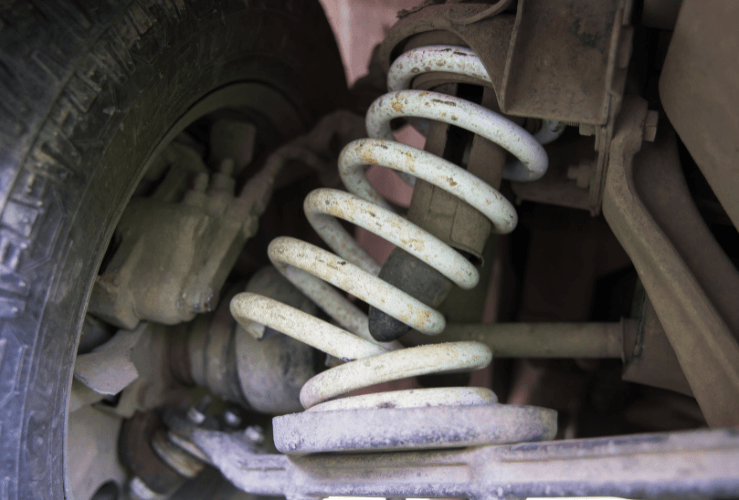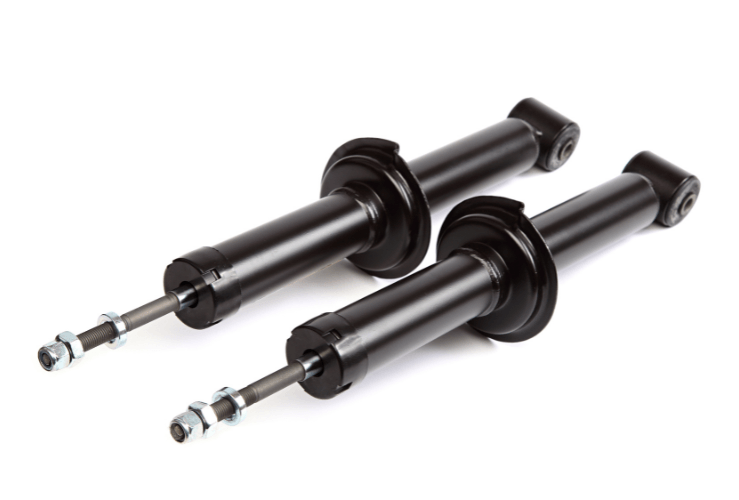Signs of faulty shock absorbers should not be ignored, since they can impact handling, steering, braking, comfort - and safety.
Learn how to spot issues, and when to schedule replacements.
Since your car's shock absorbers are likely to last several years before they need replacing, they are not the first thing a driver thinks of when their car starts to show suboptimal handling, steering, and rider comfort.
However, shock absorbers are critical to the smooth and safe functioning of your vehicle.
Failure to replace faulty shocks can increase wear on elements connected to the suspension system - including the brakes and steering.
As such, it's important to remedy any problems before they lead to more complicated and costly ones.
Additionally, because faulty shocks can impact handling and overall control, there could be safety implications.
Can I Drive on Faulty Shock Absorbers?
You should not continue to drive if you suspect you have a damaged or worn-out shock absorber.
What Are Car Shock Absorbers?
Shock absorbers are pump-like devices that help your vehicle's tyres maintain contact with the road by managing the rebound effect of the suspension system.
By maintaining tyre-surface contact, your vehicle will deliver optimal road handling, steering, and braking.

How Do I Know When My Shock Absorbers Need Replacing?
Any of the following symptoms may suggest you have an issue with one of your shock absorbers. However, do note that these issues may relate to another problem with your car - although experiencing a combination of them increases the likelihood of shock absorber issues.
- Leaking shock absorber fluid around the struts or the absorbers themselves
- Cupped tyre(s)
- Vibrations continuing after striking a pothole; suggests the absorber is not dampening out the vibration
- Significant body roll on light turning or lane changing
- Excessive "nose dive" where the body tips forward
- "Squatting" in the rear as you accelerate
- A harsh, bumpy or bouncy ride
- Poor steering response
Monroe Safety Triangle
Shock absorber manufacturer Monroe developed a shock absorber safety triangle, which helps motorists understand the three 'sides' to optimal shock absorption: Stopping, Steering, and Stability.
If one or all of these are issues, you might have one or more faulty shock absorbers.
When to Replace Car Shock Absorbers?
So, how long do car shock absorbers last?
As a rule of thumb, shock absorbers should be replaced every 50,000 miles, which equates to every 5 or 6 years based on average UK mileage.
It's sensible to replace them before any issues start developing.
Price to Replace Car Shock Absorbers?
Front shock absorbers cost around £300 to replace, while rear shock absorbers will set you back a bit less - about £225. The cost will vary depending on the make and model of the car in question.
Labour will form a significant cost - especially if you have all four shock absorbers replaced.





